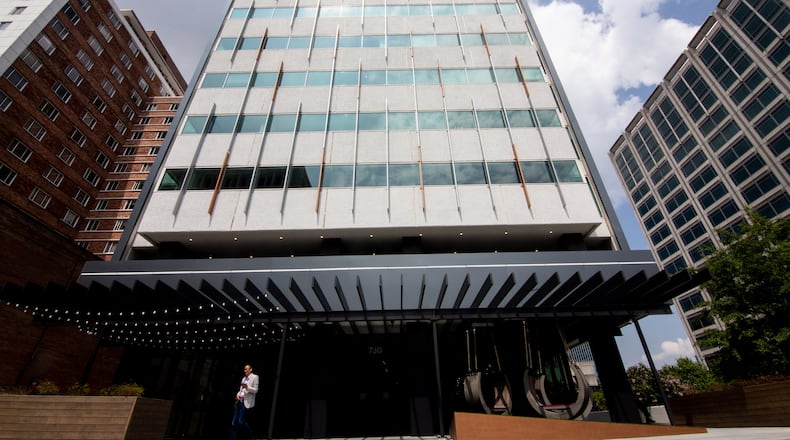The bankrupt Atlanta financial technology firm Kabbage will pay the federal government as much as $120 million to settle allegations that the lender enabled fraudsters preying on a pandemic-era stimulus program.
Whistleblowers alleged that Kabbage boosted its revenue by approving suspicious applications for federally backed loans under the Paycheck Protection Program and taking steps that inflated the cost to the government.
From its offices in Midtown, Kabbage became a major beneficiary of the program, which was intended to help small businesses pay their employees in the early days of the COVID-19 pandemic. The company handled more than 310,000 PPP loans, federal authorities say, and it racked up more than $190 million in fees by processing them.
The settlement comes as part of a sweeping effort by federal authorities to address widespread fraud that grew from rushed efforts to pump trillions of dollars into the economy during the pandemic. If the government successfully collects, the Kabbage settlement would mark one of the Justice Department’s most significant victories yet.
Kabbage, founded in 2008 on the promise of making quick loans to small businesses, sold its technology and most of its operations in 2020 to American Express, which did not take on its PPP loans. What was left of the company, then going by the name KServicing, filed for bankruptcy protection in 2022 under the cloud of the whistleblower allegations and a federal investigation.
As a result, the U.S. Department of Justice and U.S. Small Business Administration may not receive all of the $120 million they negotiated for earlier this month. The outcome will depend on how many assets Kabbage can liquidate and how a bankruptcy judge in Delaware decides to divvy them up.
For now, the federal government is still standing in line with Kabbage’s other creditors.
The Justice Department could not immediately be reached for comment. Neither could Kabbage’s current chief executive Jeremiah Foster, who was hired last year to shut down the business.
A Congressional report in 2022 singled out fintech companies like Kabbage for making PPP loans “easy targets” for fraud.
Investigators found that Kabbage, for one, disregarded its employees’ concerns about fraudulent applications and that at least one manager appeared to urge his staff to review PPP loan applications less strenuously. They also asserted that the company slashed its fraud-prevention staff while it was generating the loans.
The Congressional task force’s findings were based, in part, on internal Slack messages unearthed by investigators. The messages show that after an employee raised concerns about suspicious activity, their manager insinuated that they didn’t need to scrutinize applications like they would a Kabbage-funded loan.
“A fundamental difference is the risk here is not ours - it is SBAs (sic) risk,” the manager said, referring to the Small Business Administration overseeing the program.
The Paycheck Protection Program pumped more than $792 billion into small businesses starting in the early days of the COVID crisis, and it offered to forgive the loans as long as businesses used most of the money to pay their employees. The vast majority of its loans ultimately became grants.
The surge of money opened the door for widespread fraud. The FBI says it has opened more than 1,800 cases related to PPP fraud and arrested at least 500 people. An AJC investigation two years ago examined how authorities had been slow to pursue cases against lenders, instead focusing on individual borrowers. Prosecutors in metro Atlanta alone have charged dozens of people in PPP-related cases, including a lawyer, a prison guard and a group of celebrities.
And the Justice Department’s agreements with Kabbage indicate that the government may still be investigating people in the company’s orbit.
In return for resolving the whistleblower suits, the company agreed to hand over its internal investigations and encourage its ex-employees to sit for interviews with federal authorities.
About the Author
Keep Reading
The Latest
Featured



